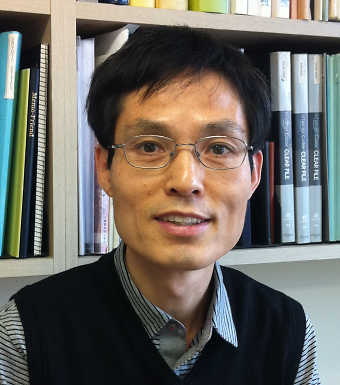Seminar by Prof. Hyeong-Chai Jeong on "Exploring New Paths for Spatial Reciprocity Using One-Dimensional Cyclic Population Structures"

Date
Location
Description
Speaker: Professor Hyeong-Chai Jeong
Title: Exploring New Paths for Spatial Reciprocity Using One-Dimensional Cyclic Population Structures
Affiliation: Department of Physics, Sejong University, Seoul, South Korea
Hosted by Dieckmann Unit
Venue: L4E48
*Zoom is available: https://oist.zoom.us/j/91984245208?pwd=Yb5Qkfc9kQD4hV4dRQugaOD8RrYRa2.1
Abstract:
In this talk, we explore novel mechanisms of spatial reciprocity driving the evolution of cooperation. We focus on simplified one-dimensional cyclic population structures to uncover fundamental principles of cooperative behavior, rather than replicating real-world dynamics. First, we extend the traditional Game of Life into a "Game of Life with Reproduction Strategy," where birth, death, and reproduction strategies are inherited across generations, showing how unfavorable environments increase population density by reducing conflict costs. We then examine evolutionary dynamics in growing habitats with vacancies, demonstrating how vacancies enable cooperators to outcompete defectors. Additionally, we introduce an extension of the Prisoner’s Dilemma (PD) incorporating Bak-Sneppen coevolution dynamics, which includes chain-reaction death processes alongside fitness-dependent selection, enhancing cooperation by promoting cooperative clusters. Finally, we investigate the PD game with wealth-dependent payoffs, where the magnitude of the payoff matrix is proportional to players' wealth, revealing new insights into how cooperation can emerge and persist in structured populations.
Biosketch:
Hyeong-Chai Jeong is a professor in the Department of Physics at Sejong University, Seoul, Korea. He earned his Ph.D. from the University of Pennsylvania. His research spans tiling and packing, statistical physics, evolutionary dynamics, and game theory. He has made contributions to the understanding of quasicrystal formation, surface phenomena in statistical physics, and evolutionary game theory. His recent work focuses on cooperation dynamics in spatial and structured populations, examining how interactions such as reciprocity and population structures influence the evolution of cooperative behavior. His research often bridges physics with interdisciplinary areas, including social systems and biological processes.
Subscribe to the OIST Calendar: Right-click to download, then open in your calendar application.



